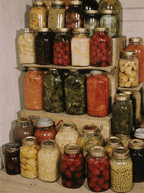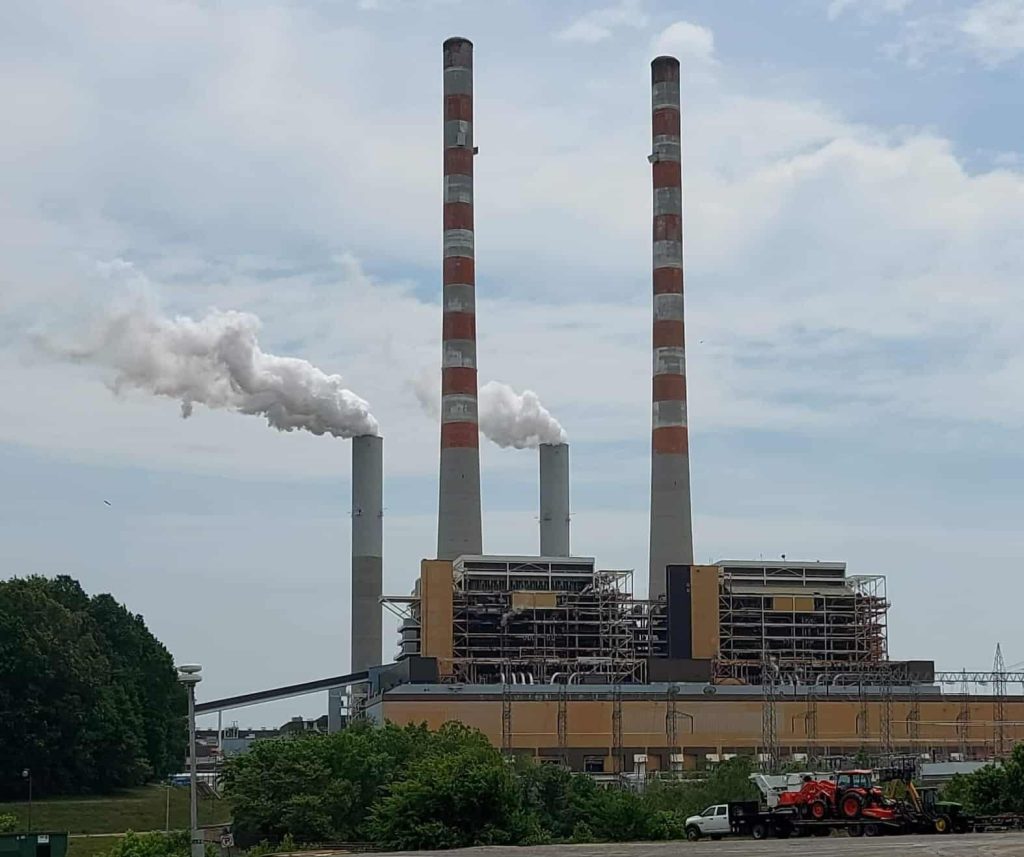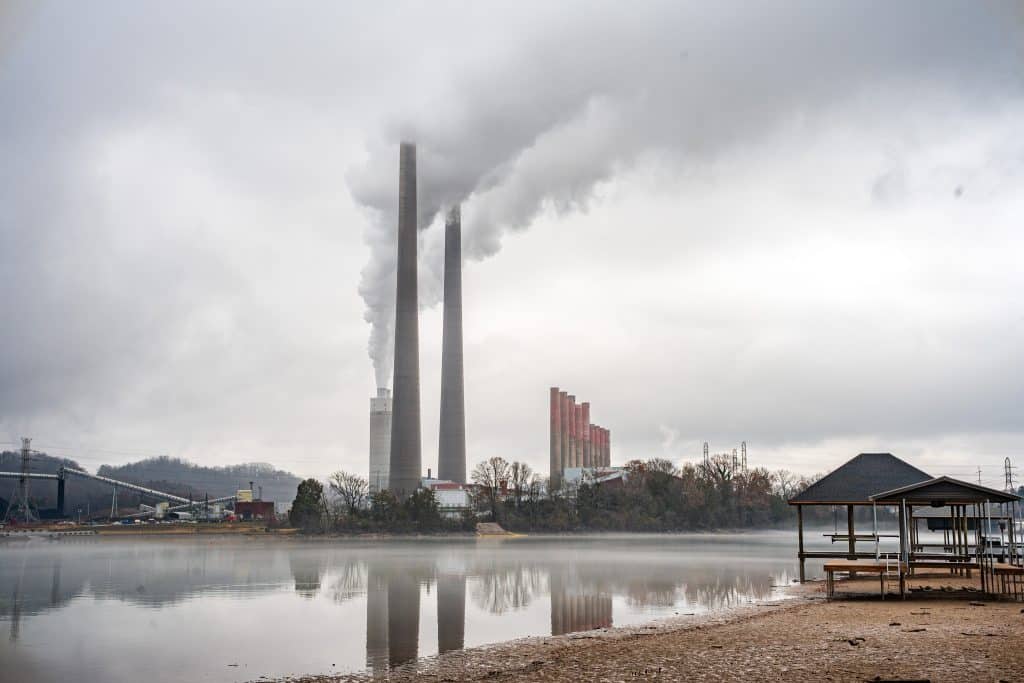Econo-vironment
Communities across Appalachia strive to ensure the economic and environmental health of their region by launching innovative programs focused on long-term solutions.

The JOBS project brought Southern West Virginia officials, contractors, electricians and interested community members together to learn the details of solar photovoltaics. Photo courtesy of The Jobs Project
Stories by Julie Johnson
Since September of 2001, over 6,400 West Virginia National Guardsmen have served in multiple combat tours in Iraq and Afghanistan. Currently, there are 998 active military reservists that will be trickling home to West Virginia in the coming months.
On top of readjusting to civilian life and dealing with possible mental and physical health issues, these men and women are returning to a home state with an average unemployment rate of 8.6%.
Many Reservists and Guardsmen were unable to keep their jobs when they deployed. There are a few federal regulations that require businesses to hold a troop’s job when he or she deploys, but they only apply to businesses with 50 or more employees. The job of a veteran that was working independently or for a small business is not protected, and many have been eliminated during the recent economic downturn.
When those 998 return home from deployment, (or in many cases, multiple deployments,) they will find that jobs have been diminished by downsizing and business closure. They will find the state’s coal industry offering approximately 20,000 mining jobs, over 100,000 fewer than it did during the 1950s.
During the years of their duty, the Appalachian region lost more than 35,000 jobs in farming, forestry and natural resources and another 424,000 jobs in manufacturing, accounting for a 22% loss in total employment opportunities.
This leaves vets, like so many other citizens of Appalachia and America, often desperately stuck between job hunting and the unemployment office. All face the daunting task of feeding the kids, keeping the lights on and paying the mortgage in an unforgiving economy.
Some vets can turn to the G.I. Bill, honing their skills at universities and avoiding the job market for at least four years. Some can turn to various government programs, applying for small business loans and assistance through the Veterans Affairs programs.
But the long-term employment solution for both soldier and civilian in Appalachia, and perhaps the economic solution for the region itself, may come in recognizing the huge potential for sustainable, community-centered development in the region.
“Historically, the residents of Appalachia have faced chronic and severe poverty, substandard housing, inadequate schools, and poor health care for many generations,” said Richard Greenlee in an April 2010 U.S. Senate hearing on Appalachian Culture and Veterans.
“Despite these many challenges, they have survived and in some situations flourished. Resilience is a major component of their constitution… Their environment has often required them to learn how to make do, make it last and do without,” he said.
Creating economic opportunity and transitioning Appalachia to prosperity requires acknowledging these traits and channeling them into practical applications. The following projects provide working examples of grassroots economic development that allows natural resources to be used sustainably and ownership to stay within the community.
Cooking up Small Business Opportunities
Coal River Valley’s Community Food Kitchen
This September, residents of West Virginia’s Coal River Valley will find a newly opened community kitchen and small business incubator ready to serve the Boone-Raleigh area.
Residents of the area planned, financed and built the center as a neighborhood common ground, a space to “heal this very divided community,” says Lorelei Scarboro, an organizer for the project, formerly of Coal River Mountain Watch.
The center will offer a community greenhouse and gardens and soon a canning kitchen, arts and crafts center, learning center and small business incubator. The goal is for any community member that wishes to be able to get their product from harvest to market with as little overhead cost as possible. “We believe if we can grow, harvest, process and market it locally we will all be healthier and wealthier,” says Scarborough.
Skill-sharing and traditional craft workshops will also be held at the center. These workshops will focus on inspiring local craftspeople to pass down the knowledge of Appalachia’s unique traditions to younger generations.
“This is about empowering the people who are rooted in the community, those who have lost hope and feel as though their voice is not heard.” says Scarboro. The Community Food Kitchen is located at 39037 Coal River Road in Whitesville, W.Va.
Sunny Skies for West Virginia JOBS
By Derek Speranza
Even in the heart of coal country, renewable energy projects are pushing forward – and gaining momentum in the process.
One standout among these projects is the JOBS project, a renewable energy initiative that creates local jobs in Central Appalachia by developing and installing renewable energy systems.
One focus of the JOBS project is the installation of solar panels in West Virginia.
Partnering with Mountainview Solar & Energy, the JOBS project made its pilot installation on a Williamson, Va., home just months ago, and the project was even covered by the BBC.
“We cannot generate enough energy to fuel our current appetite,” says Jenny Hudson of the JOBS project, “so the town of Williamson is interested in employing energy efficiency technologies and promoting conservation.”
Together, the JOBS project and the town of Williamson are leading the way in new technologies.
The JOBS project is currently preparing for a community event in the Fall surrounding the solar installations, so stay tuned.
Visit jobs-project.org for more information.
Finding Ways Forward: Appalachian Transition Initiative Seeks Strategies for a Sustainable Future

Juetta and Gene Potter (above), co-owners of Country Care Daycare, were MACED’s first Energy Efficient Enterprises client. The Potters received a free energy assessment and a loan to cover the cost of replacing their dated heating system with a more efficient wood gasification boiler unit, fueled by by dead or dying wood the Potters harvest from their farm. Photo courtesy of appalachiantransition.org
Two Kentucky non-profit organizations are collaborating to create the Appalachian Transition Initiative. Kentuckians for the Commonwealth (KFTC) and Mountain Association for Community Economic Development (MACED) conceived the project as a means of addressing economic disparity in Central Appalachia.
According to their website, “we stand divided in our communities, and are subject to broader economic forces that seek our resources—including the coal under our feet—at the cheapest price possible. It’s time for transition, and to get ready we need a real and honest conversation about our future.”
The Transition Initiative seeks to generate and expand this conversation through collaborative projects with community members, non-profit organizations and entrepreneurs in Appalachia. Recently, members of the Initiative worked with the Central Appalachian Prosperity Project to complete the Essays Project, 24 white papers that detailed various approaches to transition within the region.
The Transition Initiative’s website, found at appalachiantransition.org, offers a comprehensive list of “ways forward,” ranging from sustainable agriculture to education and workforce development.
The Millard Area Technology Center is featured as an example of a sustainable workforce development model. Millard offers an energy auditing and home weatherization certification program. The current students are already employed by community action agencies and local businesses, and are beginning weatherization projects in homes throughout southeastern Kentucky.
“There is no one single idea or industry that will create a more just, sustainable and prosperous future in Central Appalachia,” according to the site. “But there are a wide variety of efforts and directions to pursue ranging from better and more sustainable utilization of our region’s diverse forestland to improvement in the quality of and access to child care for the region’s kids.”
Related Articles
Latest News

Leave a comment
Your email address will not be published. Required fields are marked *






Leave a Comment